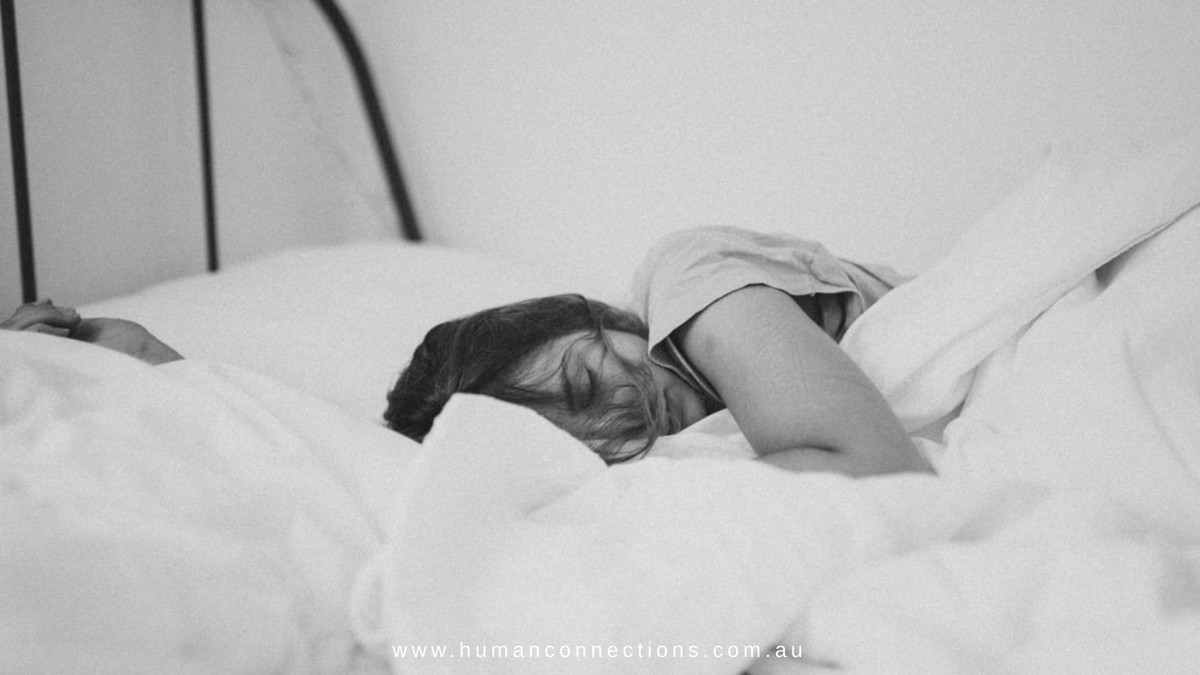Sleep is essential for Mental Health and Wellbeing
The book “Why We Sleep” by Prof Matthew Walker details critical research that shows sleep is the most powerful thing you can do for your mental health and wellbeing.
If you’re an Accidental Counsellor – that is someone who responds to emotional upset and distress without formal counselling skills then looking after your own mental health and wellbeing is critical.
You can find out more about our online Accidental Counsellor Courses including a free 80 minute overview of the Accidental Counsellor at www.accidentalcounsellor.com
Below are some techniques that will help with getting quality sleep.
Techniques to fall asleep
Many of us find ourselves tossing and turning, leading to sleepless nights with no remedy. Here are a list of numerous different strategies to combat this issue and you can find the ones that work best for you.
Get into a routine
Having a regular routine can dramatically improve your sleep quality, your body will have a much easier time falling asleep when it knows what’s coming. Therefore a consistent bedtime ritual is key, try some of these techniques:
- Yoga, stretching or meditation – Just 10-15 mins can help you relax and calm your mind before bed
- Warm bath or shower – This allows your body temperature to drop which is a natural part of the process of falling asleep
- Reading or journaling – Reading a hardcopy book or journaling with pen and paper can be extremely stress relieving and prepares your mind for sleep
- No coffee within 4 hours of bedtime – Coffee stimulates the brain and keeps you awake, any caffeine within 4 hours will disrupt your sleep
- Avoid nighttime workouts – Like caffeine, night workouts also stimulate your body and brain, keeping you awake and restless during the night
Adjust your sleeping environment
Ensuring your sleeping environment is disruption free and relaxing is also essential to optimise your sleep.
- Make it cool – Try to keep the temperature between 15 and 19 degrees Celsius
- Bring the black – Keep the room as dark as possible, even pitch black if possible by getting blackout curtains, shutting the door
- Loose the clock (and phone too) – The temptation is strong to keep checking the time and notifications but these keep your mind stimulated and you awake.The blue light from your phone also delays the release of melatonin (the sleep hormone)
- Aromatherapy – A variety of scents can help you relax, reduce anxiety, boost mood and improve sleep quality. Scents include; lavender, rose, chamomile, jasmine and frankincense
Keep it regular
The most natural way to fall asleep is to go to bed at the same time every night. Your body survives well with routine and likes to be able to anticipate the onset of sleep. A consistent bedtime allows for this to happen. Sleep consistency also helps your body maintain its natural circadian rhythm, your 24-hour internal biological clock.
4-7-8
The 4-7-8 breathing technique is a method of relaxation that works quickly for many people, its not a sleep remedy but it can help your body decrease its stress.
Here’s what to do:
- Put the tip of your tongue on the roof of your mouth just behind your front teeth
- Breath in through your nose for 4 seconds
- Hold it in for 7 seconds
- Breath out through your mouth while making a “whoosh” sound for 8 seconds
- Repeat this pattern 4 times
Visualisation
This can be a very powerful technique, similar to daydreaming. Instead of counting sheep think of a calming and relaxing scenario, for example; a walk along the beach, exploring a forest or waterfall.
Your sleep is essential for your self care, mental health and wellbeing. Your performance and success during the day is highly correlated to the quality and quantity of sleep. Ensuring you have a regular sleep schedule and optimal environment will allow you to say no to sleepless nights and yes to restful nights.
To find out more on learning counselling and to access a range of mental health and wellbeing courses including the Accidental Counsellor Course and a free 80 minute Accidental Counsellor Training go to www.accidentalcounsellor.com

